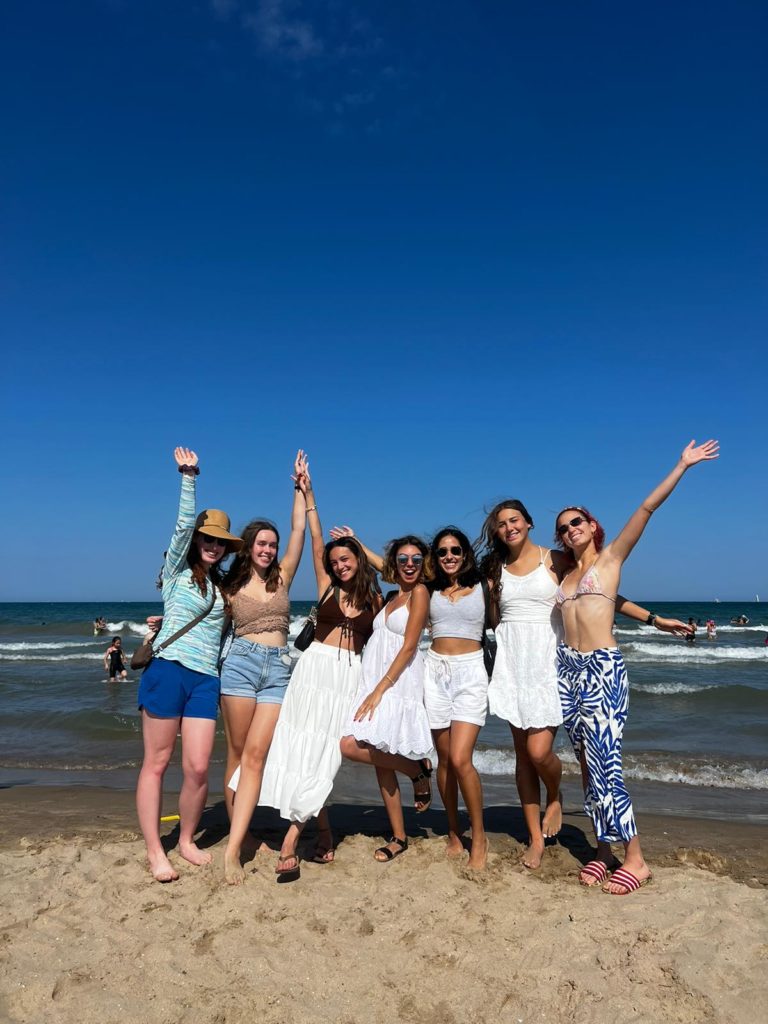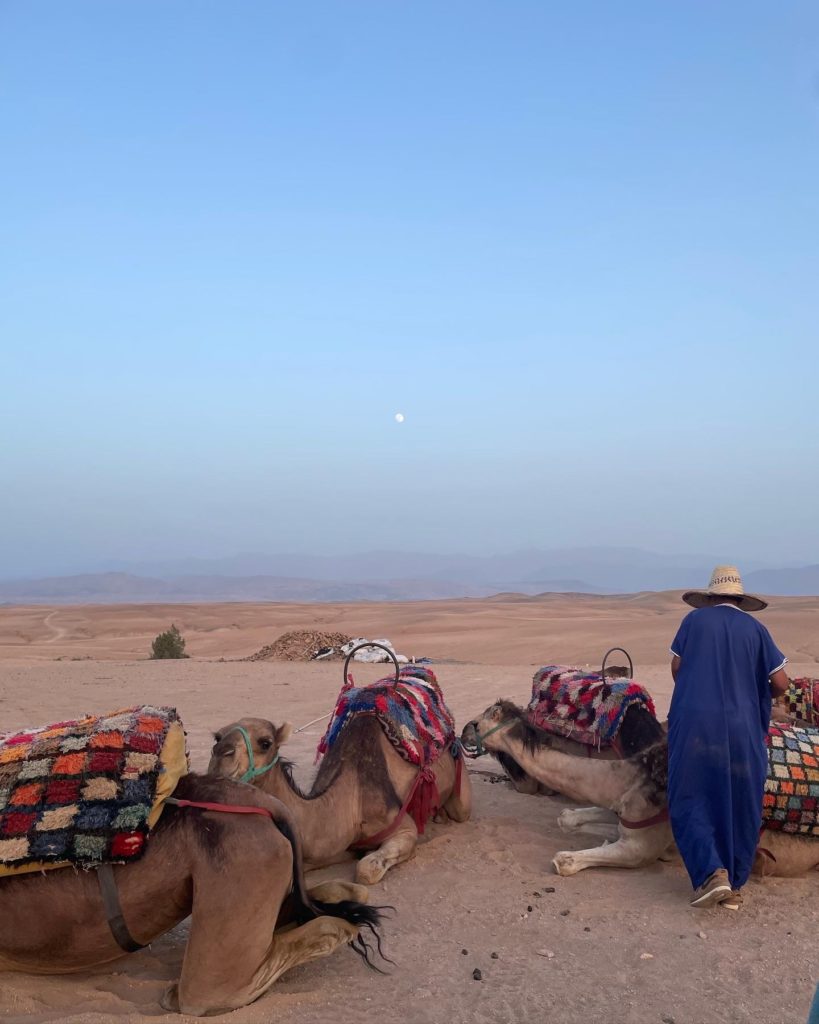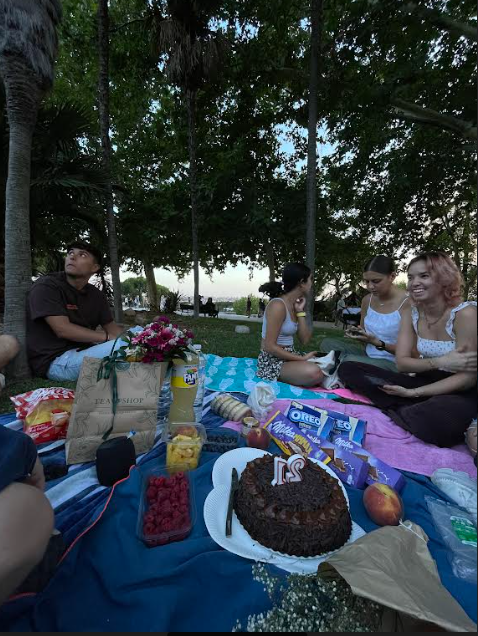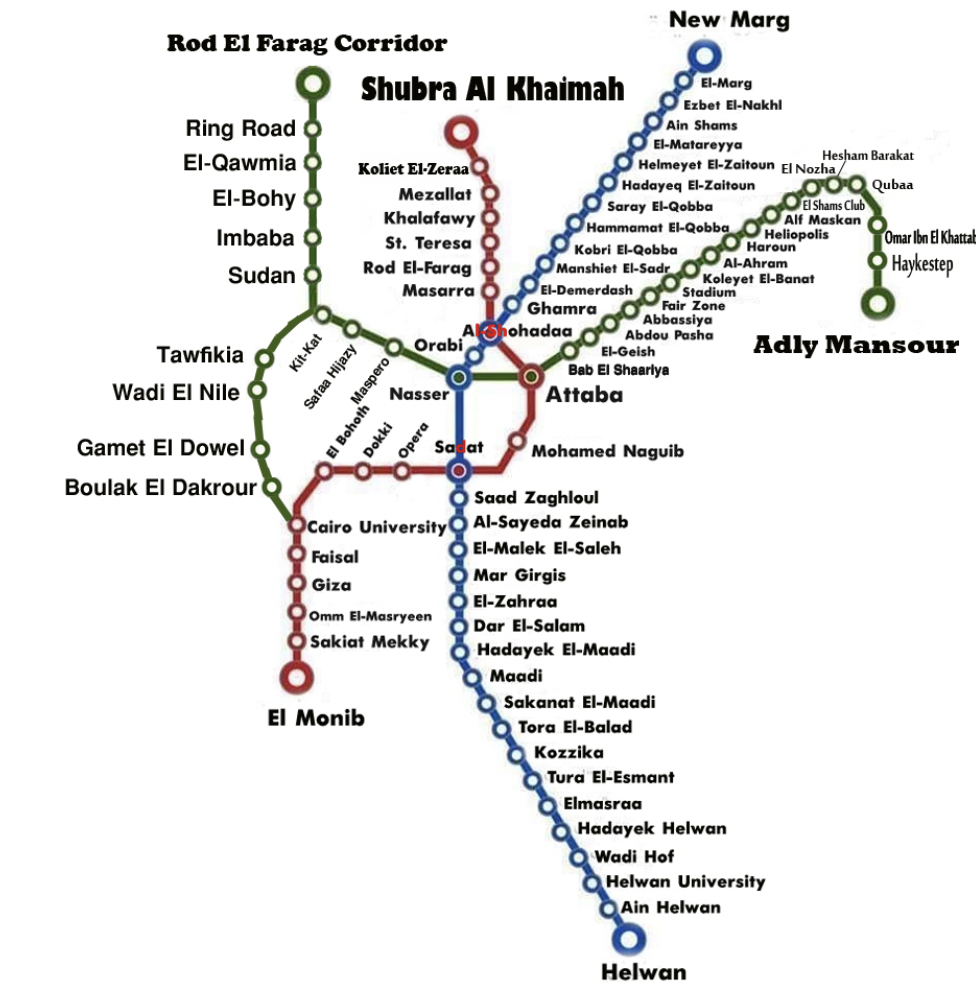
I have walked to the pyramids every day for the last 3 weeks. Well, not exactly. The metro station that I start from every morning is a 15 minute walk away from my grandmother’s apartment, and coincidentally, it’s called “Al Ahram” which directly translates to “The Pyramids.” What luck! Now, on a more honest note, I actually have walked past the Nile every morning as well, its in my path. These last three weeks have been crazy. `I have experienced some of the hardest and some of the most fulfilling things I have encountered in my life within the city of Cairo so far. Class is going well, and I go 5 days a week for 4 hours a day, speaking only Arabic with my teachers. I have heaps of vocabulary to learn, and have gone through about 90 percent of the arabic grammar, in my opinion no small feat, but i know there is still much to go. The immersion occurring has also been a ridiculous experience. This is the first time I have seen my family in 6 years, and much has changed, both in me and them, but love reminds us quickly. On top of that, the last time I came I was 14, and frankly, my parents would shelter our experience pretty drastically. The trip was usually only 2 weeks, one week in Cairo, and another week on the coast somewhere on a nice beach vacation. Very different compared to this time, where I really live in the country and am not a tourist. I see the same faces daily in things like the gym I attend, I have built relationships with some of the people like my professors and other students who study in the Academy, and even have had the chance to befriend people like the florist who lives close to grandma’s Mister Samir. There is so much to write. I think I will have to break this up into parts.
Stop One:The walk to the Metro and boarding at Al Ahram Station
The first week was a completely new experience in every way. Everything that I thought I knew about the language or the culture was nearly thrown out, and the false level that I assumed I had was knocked down by more than half. Going to a country thinking that I’m at a high intermediate to be quickly reminded that I’m a high beginner/low intermediate at best was definitely a hard pill to swallow at first.
On top of that, navigating the metro system was no joke. The second day I was in Egypt, my uncle took me to show me the path. I felt like a rat in a maze having to navigate the underground tunnels. But something about the liveliness really attracted me. The first week was new even through the things that should seem familiar. It has been six years since i’ve seen my family in Egypt, my little cousin Youssef, my cousin Nada, my Uncle Amir, aunt Mona, and Grandma Hoda. My cousins and I have grown tons since the last time we saw each other, so the first week was like a discovery period, trying to understand their personalities and them trying to decipher mine.
Stop 2: Kolleyet El Banat Station (¼ of the way)
This stop will talk about the second and third weeks. By this point, I have a decent grasp of the metro system, using it every day basically, buying the ticket from the front desk and everything with ease. My classes are intense, every day new vocabulary and grammatical concepts, but for the most part i’m keeping up. There is something both motivating and defeating about being given a reading by my professor and not understanding about ¼ of the words, having to ask her for help nearly each sentence and not grasping the meaning without her help. On the one hand, the motivation comes from the fact that hopefully I will be able to reach this level soon in my stay. On the other, there is this fear that I won’t get to that level at all, and that maybe the academy placed me higher than my actual level. There is a fear here, deeper than just the passage that I didn’t understand, more so it’s a fear of something bigger, failure. I’m scared that maybe this summer was a mistake or I won’t succeed in the ways I expected to during this summer. During this time however, I find that I’m getting more comfortable with my family, being able to contextualize the love that I grew up having for them. It’s a strange thing to love someone from afar without really truly knowing them and then spending time with them and realizing where that love comes from. Strengthening those relationships with every day that passes is something incredible.
Stop 3:El Geish Station (½) (culture shock)
Unlike most of my classmates in different countries doing their study abroads, this isn’t the first time I visit my country, I’m Egyptian in origin. Mom and dad immigrated in ‘99 to America, and I’ve visited Egypt a handful of times before, but never long enough to truly “live” there. The visits would be two weeks, one week in Cairo where we would go to visit family and friends mostly, and the next week would be to a beach resort, completely different from the day to day that i’ve experienced here. After being here for a while, I’ve noticed some things. First, once I open my mouth to speak, people can immediately tell something’s not quite right, and they follow up with the age-old question: “Anta Masry? ” which translates to: “ Are you Egyptian?” Other than this regular, daily occurrence, I’ve had 4 instances that come to mind when thinking about culture shock in my time in Egypt. The first of these occurred during Eid al Adha, a muslim feast centered around sacrificing and eating sheep. In Cairo, the Eid vacation lasted 6 days, and I happened to walk in the streets the day of the Eid itself. I got off at El Geish station to meet a brother who used to work in my high school and was working in Egypt for the last 3 years. The school he worked at was in the middle of the city, in a less developed part of town, and I saw so much in those walks. To begin, the streets were nearly empty regarding cars on the road, everyone was either traveling or inside their homes. However, in the streets and alleys, there was this smell, one of rotting flesh, blood dirt and concrete, one that smelled the same everywhere I went. This was because in the streets, people were butchering the sheep as per custom, but this was my first time seeing something like this. Regardless, when I met the Brother, he gave me a tour of the school, and then we walked together to another school about 15 minutes away. In this walk, we were speaking in english, and a group of kids came up to us, speaking in english and arabic, telling us phrases like welcome to egypt… then one boy on the back of a motorcycle zipped by and threw his eaten cob of corn at my neck, and hit it. Frankly, it was a good shot.
This was one of the first times in Egypt I felt a little nervous and I felt that the situation underlined how I was different there, not truly accepted. Also, as a Christian, walking with a Catholic brother in the streets to and from two catholic schools, I knew that something could happen. It did.
Al Abbasiya Station:
The next culture shock came on the metro itself, where I had the rare opportunity to sit down. In Cairo, metro culture exists where if you are young and able bodied you give up your seat to the elderly or women with children immediately. This was not the culture shock part, in fact I like this tradition a lot. What I did not know, however, was that there is a strong culture against sitting cross legged. It’s 100 degrees in Egypt these days, and I go from school directly to the gym, so I walk around in shorts. This time I sat down, an elderly man came and sat in front of me. We pass a couple of stations, and the man stands up, getting ready to leave and heads to the doors where I was sitting next to. He then asks me in Arabic my favorite question: “Anta Masry? (Are you Egyptian?)”I tentatively answer yes and as I get ready to explain, he cuts me off and scolds me as to how inappropriate it is for me to sit in front of an elderly man with my legs crossed and the soles of my shoes showing. This was one of the moments I realized that though I have a background in the country, there are many cultural nuances I still haven’t learned. However with each day, I feel as though I discover more about the culture I am immersing myself in.
Why does any of this matter? I think all the anecdotes show that my time in Egypt has been characterized by intensive learning, through a method like “trial by fire.” It is a blessing to be here, and I am proud of my progress so far, and look forward to what is to come.
Gamal Abd El Nasser Station (Nearly to school, what is removed from me while here):
This trip is teaching me about how I see myself as well. Before it, I had a few points that I would characterize myself with: Being a Notre Dame Premed Student, being Egyptian, being into fitness, and in a way, all three of these things have been somewhat taken away here. Everyone tries to distinguish themselves with their specific unique features. Firstly, Notre Dame is not well known here at all, and me being a student there means very little here, much less than it does in America. Regarding fitness and working out, I go to a pretty intense gym every day, where I’m surrounded by people much stronger and bigger than me, and I also had a hernia scare a few weeks in (but it thankfully ended up being nothing serious), so in a way working out was taken from me. Then finally, and most relevantly, the fact of my “Egyptianness” being a distinguishing factor has been completely squashed here. Here I’m not even fully Egyptian, which is something that’s hard to accept at times. And I know for a fact I am not fully American, so that leaves me questioning at times.
Sadat Station (The station next to my School):
So every day, I get off at Sadat, and then walk another 10 minutes, but this time on the bank of the Nile (super picturesque and Egyptian, one of the highlights of the daily journey). Then, I reached The Arab Academy, which in itself deserves a writing on its own. Regardless, after studying for 4 hours, I go to the gym, then return to grandma’s where I eat a good meal, study or spend time with my cousins, strengthening the relationships and loving my family more and more.
Then I rinse and repeat! I’m getting excited for the next two weeks, because my family will be visiting and I’ll get to show them around my life here! The way I’ll write forward will be one blog post regarding the school and studying itself, and the next will be an accumulation of little excursions I’ve done so far, and then finally, a post detailing and reviewing the food I’ve been able to eat in my time here so far.
Till next post!






